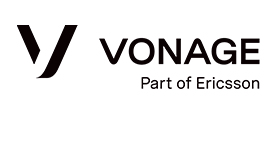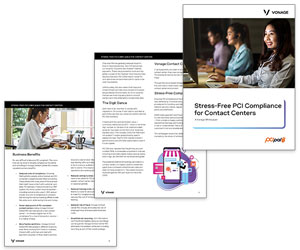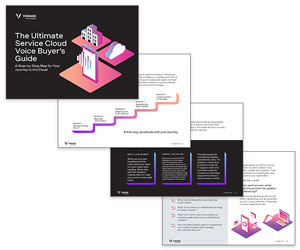Cliff Cibelli at Vonage explores how modern contact centres have evolved into vital business hubs, driving customer satisfaction, revenue growth, and strategic insights through centralised communication, data analysis, and omnichannel support.
Contact centres are no stranger to evolution. Business needs have evolved the contact centre from a cost centre to a proactive driver of revenue and profitability and a crucial component of customer experience.
Today, contact centres are uniquely positioned to act as a hub for your organisation. This article explores the five ways that this impacts businesses and customers.
Turning Great Service and Customer Experiences Into Revenue
A contact centre not only provides a way to connect and support your customers, but using analytics to gain insights from the interactions can provide the business additional information to identify trends and issues before they impact your key objectives negatively.
Contact centre agents are often the primary point of contact with customers, addressing questions, directing them to the right resources, and solving issues.
A cloud-based contact centre, also known as CCaaS or Contact Centre as a Service, takes this one step further. It enables agents to communicate with customers across channels like voice calls, chat, text messaging, and social media.
The result? Quality service and personalised experiences that can turn into profitability. Our Global Customer Engagement Report 2024 uncovered that 52% of customers surveyed will become more loyal to a company after a great experience and 36% will even purchase additional products.
In short, it’s important to optimise customer service across communication channels available to existing and prospective customers.
5 Ways Contact Centres Are Business Hubs
So what are the top five ways that a contact centre functions as a business hub? Where does communication fit in, and what is the business impact? Let’s dive in.
1. Centralised Communication
A contact centre consolidates all incoming and outgoing communications, including phone calls, emails, live chats, social media interactions, and more, ensuring that you capture both external customer and internal employee interactions.
By centralising these channels, you can streamline communication management, ensure consistency in customer service, and provide feedback essential for overall business management.
2. Multichannel Support
With the proliferation of modern communication channels, customers expect businesses to be accessible through their preferred platforms.
What’s more, they don’t want to repeat themselves multiple times or deal with long wait times. Contact centres integrate various channels to offer omnichannel support, enabling customers to interact seamlessly across the channels, while employees maintain continuity in conversations.
3. Data Collection, Insights, and Analysis
Contact centres capture a vast amount of data from customer interactions, including feedback, preferences, and pain points.
By analysing this data, businesses gain valuable insights that inform strategic decisions, product or service improvements, and marketing campaigns – all of which drive growth.
4. Brand Reputation Management
Contact centres play a crucial role in shaping brand reputation by delivering prompt, knowledgeable, and empathetic customer support.
What is often overlooked is the monitoring of social platforms to capture what customers may be stating publicly but perhaps not to an agent directly.
By correlating the data from social as well as direct interactions, you get a more holistic view of your brand. And by reviewing data across all interactions, businesses can build trust, loyalty, and positive word-of-mouth, contributing to long-term success, attracting new customers, and retaining existing ones.
5. Increased Sales and Revenue
Contact centres are not only equipped to handle customer inquiries, but also to capitalise on opportunities.
Agents have a 360-degree view of the customer they’re interacting with, including the services they have, pain points, etc.
This means that they’re in a position to resolve issues and upsell or cross-sell services. In doing so, agents can generate additional revenue streams and maximise the value of customer interactions.
Thinking of your contact centre as a business hub enhances your organisation, from gaining a competitive edge to better serving customers and moving your overall business ahead.
Centralising communications and data across channels delivers meaningful customer interactions and maximises opportunities.
This blog post has been re-published by kind permission of Vonage – View the Original Article
For more information about Vonage - visit the Vonage Website
Call Centre Helper is not responsible for the content of these guest blog posts. The opinions expressed in this article are those of the author, and do not necessarily reflect those of Call Centre Helper.
Author: Vonage
Reviewed by: Jo Robinson
Published On: 31st Mar 2025
Read more about - Guest Blogs, Cliff Cibelli, Vonage






 Vonage is redefining business communications, helping enterprises use fully-integrated unified communications, contact centre and programmable communications solutions via APIs.
Vonage is redefining business communications, helping enterprises use fully-integrated unified communications, contact centre and programmable communications solutions via APIs. 





























